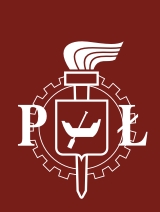
THE ELECTRICITY SUPPLY SYSTEM ASPECT
Problems concerning all sector performance
Nuclear safety : Safety issue doubts
Although all producers and lobbyists follow the thought of the high level nuclear security and convince undecided part of societies, there are a group of serious objection about real face of nuclear reactor's safety. In July 2009 NII - Nuclear Installations Inspectorate, organisation established to controlling and supervising the nuclear facilities addressed to AREVA (reactor's producer) and EDF (nuclear power plant operator in France) letter of concerns about EPR rector's safety solutions. Their notices was about following problems[70], [98]: Control and instrumentation system is very complex and it does not ensure high level of safety despite of the fact that system is targeted to higher class solution.
During generation II reactors development, safety concerns has been at lower levels that today. So old, operating reactors has a few defects that can not be removed. Although producers and lobbyists convince to high level of security but any serious accident caused by unpredictable conditions can lead to radioactive contamination of large area. Range of the contamination is said to be larger than in case of nuclear bomb detonation. Example of such unpredictable circumstances has taken place in Japan, where after earthquake of power over design assumption and tsunami wave, nuclear accident occurred. Accident was estimated by French regulatory to no. 6 in INES scale [100] just after tsunami. Japanese describe accident to no. 7. [101] New generation of reactors are said to highly secure. It is true because of passive safety systems. However, after precise analysis, they appear to have several serious problems (The U.K. Nuclear Installations Inspectorate concerns about EPR design [98] ) Average reactors age is over 20 years. Reactors designed for 40 years of service are gained the extension of license for next 20 years. Age degradation of reactor's elements are not well known. Its detection is difficult and in consequence breakdowns due to degradation are difficult to predict. Reactors operation does not always run with designed aims. There are cases when, due to economic profits, nuclear power plants operates with reduced staff and what is worse, operators modify elementary service parameters like temperatures and pressures. It affects negatively the aging process and decreases security margin. [97]
-
Nuclear power industry|
Technology|
The electricity supply system aspect|
Economics|
Environment|
Public aspect|
Future|
Legislation|
References|

